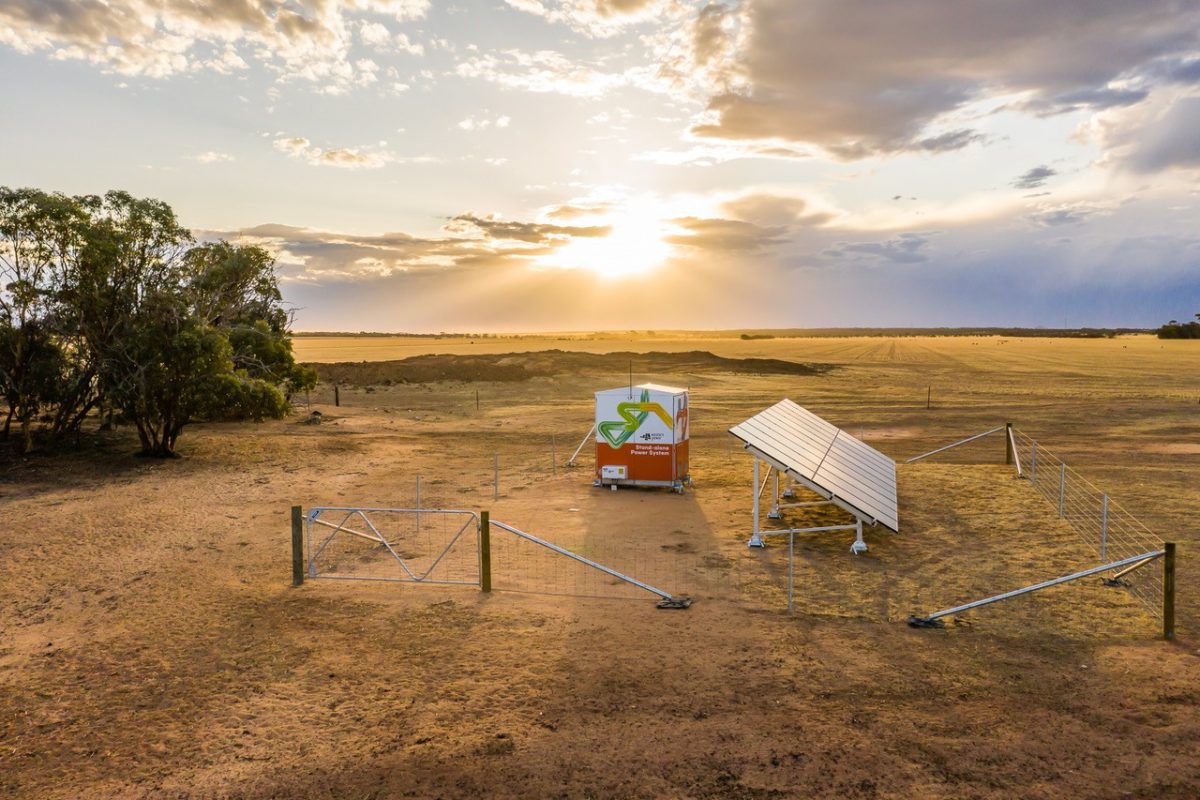Remote power supplier Pacific Energy has bought Perth-based microgrid specialist Hybrid Systems in a bid to capitalize on Western Australia’s transition from poles and wires to offgrid solutions. The acquisition comes just months after Pacific Energy’s subsidiary Contract Power secured a 20-year contract with Western Australia’s regional utility Horizon Power to build a renewable energy hub to power the town of Esperance.
This is the first major strategic step for Pacific Energy after it was bought by Brisbane-based institutional fund manager QIC for $470 million in November. The company hopes its acquisition of Hybrid Systems, which was completed amid the additional complexity of nation-wide Covid-19 restrictions, will help it establish a strong foothold in the fast-developing market for Stand-alone Power Systems (SPS) and microgrid systems.
“This transaction delivers a talented and cutting-edge team experienced in the integrated renewables market, where decentralization, decarbonization, and cost reductions are generating significant new growth opportunities,” Pacific Energy CEO Jamie Cullen said.
Hybrid Systems has already established its foothold in the SPS market. It is supplying 47 off-grid hybrid solutions to WA government-owned electricity distributor Western Power, which aims to install 57 SPS units on properties throughout the state.
The company also aims to take part in Round 2 of Western Power’s SPS program, which will see another 100 units installed at fringe-of-grid locations. As an economical alternative to replacing poles and wires, servicing the 57 systems for their entire working life will save Western Power almost $6 million, compared to traditional network refurbishment. These units are modular and scalable and range from less than 5 kwh, to supply electric fences and dam pumps, to 50 kwh for large-scale agricultural businesses.
Another off-grid program in WA is run by Horizon Power, which became the first utility in Australia to remove parts of its overhead network and replace it with an off-grid renewable energy power solution. Horizon is installing 17 standalone power systems on fringe-of-grid properties east of Esperance which will replace 64 kilometers of unreliable poles and wires.
In WA, it is estimated that more than 50% of all the overhead distribution network is dedicated to servicing around 3% of the population. Maintaining such a network can be very and costly so SPS are becoming a no-brainer in WA. While they deliver value to remote customers and save millions in infrastructure costs, in the long-run, SPS deployment translates into savings for all WA taxpayers.
“I’ve spoken to farmers about the benefits of having their own stand-alone power systems, with less outages and improved reliability, they’re just thrilled with the results,” WA Energy Minister Bill Johnston said. “The 30-year cost of servicing a customer in the isolated Wheatbelt region, with poles and wires, is 24 times that of a Perth customer, so bringing in these systems will reduce that cost for the State and taxpayers.”
Microgrid opportunities
In addition to the SPS market, the increased demand for distributed and clean energy was also providing opportunities for Hybrid Systems’ larger battery systems to be deployed at remote towns, communities, and mine sites. The company has completed battery projects in remote WA towns such as Onslow, Carnarvon, and Mt Magnet.
As a key supplier to Pacific Energy’s Contract Power, Hybrid Systems will be providing a battery storage system and integration services for the Esperance project. This project, which is on track to operate from 2022, involves the construction of Horizon Power’s largest solar farm, a 4 MW array.
Across its portfolio of projects to date, Hybrid Systems has developed capabilities to supply integrated SPS, microgrid, and battery systems that range from 3kW for a single fringe-of-grid customer up to 10MW microgrid systems for towns and mine sites. Pacific Energy will maintain the Hybrid Systems’ brand name and support it through funding, resources, and facilities to have a greater national reach.
“With QIC’s further support and the quality of its enhanced renewable offering, Pacific Energy has the ability to service east coast markets with a tried and tested hybrid product, as well as its traditional WA market,” said QIC Global Infrastructure Head, Ross Israel. He noted that there was significant potential in fringe-of-grid locations nationwide, including the replacement of remote power infrastructure destroyed by last summer’s bushfires.
This content is protected by copyright and may not be reused. If you want to cooperate with us and would like to reuse some of our content, please contact: editors@pv-magazine.com.









By submitting this form you agree to pv magazine using your data for the purposes of publishing your comment.
Your personal data will only be disclosed or otherwise transmitted to third parties for the purposes of spam filtering or if this is necessary for technical maintenance of the website. Any other transfer to third parties will not take place unless this is justified on the basis of applicable data protection regulations or if pv magazine is legally obliged to do so.
You may revoke this consent at any time with effect for the future, in which case your personal data will be deleted immediately. Otherwise, your data will be deleted if pv magazine has processed your request or the purpose of data storage is fulfilled.
Further information on data privacy can be found in our Data Protection Policy.